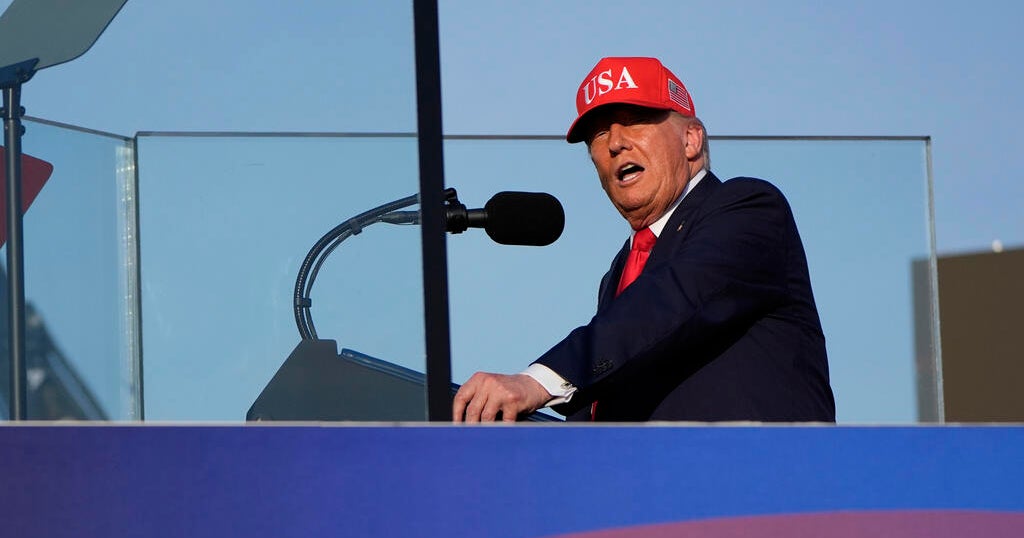In a recent speech in Iowa, former President Donald Trump made remarks that have since drawn considerable scrutiny and backlash. Referring to certain lenders as “shylocks and bad people,” Trump has been criticized for invoking a term perceived as an ancient antisemitic trope. This incident occurred during his address celebrating the passage of his One Big Beautiful Bill Act, where he discussed the elimination of the estate tax and related issues.
| Article Subheadings |
|---|
| 1) The Controversial Remarks |
| 2) Reaction from Critics and Advocacy Groups |
| 3) Historical Context of the Term |
| 4) Previous Incidents of Similar Language |
| 5) Implications for Political Discourse |
The Controversial Remarks
During a Thursday evening address in Iowa, former President Trump made a statement that quickly became the center of controversy. While celebrating the passage of his flagship One Big Beautiful Bill Act, which is designed to eliminate the estate tax, he remarked, “Think of that. No death tax, no estate tax. No going to the banks and borrowing from in some cases a fine banker, and in some cases shylocks and bad people.” His use of the term “shylocks” drew significant attention due to its historical context and the reactions it provoked.
Reaction from Critics and Advocacy Groups
Following the speech, the Anti-Defamation League (ADL) expressed their strong disapproval on social media platform X, stating, “President Trump’s use of the term is very troubling and irresponsible.” They emphasized that the term evokes an antisemitic trope about Jews and greed, which is not just offensive but potentially dangerous in today’s socio-political climate. Other commentators, such as Democratic Representative Dan Goldman of New York, who is Jewish, echoed similar sentiments. In a post on X, he referred to Trump’s comments as “blatant and vile antisemitism,” suggesting that such language should be firmly denounced by all who oppose hatred in any form.
Historical Context of the Term
The term “shylock” originates from William Shakespeare’s play “The Merchant of Venice,” in which the character Shylock is depicted as a greedy moneylender. Over the years, this characterization has morphed into a broader stereotype that associates Jewish people with usury and avarice. Such depictions are considered harmful and perpetuate negative stereotypes, contributing to societal prejudice against Jewish communities. This historical context is vital in understanding why Trump’s remarks were perceived as particularly egregious and hurtful.
Previous Incidents of Similar Language
Interestingly, this is not the first time that similar language has sparked controversy in American politics. Back in 2014, former Vice President Joe Biden faced backlash for using the term “shylocks” in reference to lenders who had exploited military service members during their overseas deployment. The ADL criticized Biden’s comments at the time, labeling them as inappropriate. While Biden later called it a “poor choice of words,” the incident showed how loaded language can be misappropriated or misunderstood, leading to significant backlash. Both cases reflect the delicate nature of political rhetoric and its potential to reinforce harmful stereotypes.
Implications for Political Discourse
The incident highlights the increasing scrutiny politicians face regarding their language, especially as the country grapples with issues related to bigotry and discrimination. Critics argue that the responsibility lies with public figures to be mindful of their words, as language can have powerful implications in shaping public opinion and perpetuating stereotypes. This situation calls into question the broader issue of how minority groups are represented in political discourse and what that means for societal attitudes.
///p>
| No. | Key Points |
|---|---|
| 1 | Former President Donald Trump referred to some lenders as “shylocks” during a speech in Iowa. |
| 2 | The term “shylock” is considered an antisemitic trope historically associated with greed. |
| 3 | The Anti-Defamation League criticized the remarks as irresponsible and troubling. |
| 4 | Democratic Rep. Dan Goldman condemned the remarks as blatant antisemitism. |
| 5 | Historical context is crucial for understanding the implications of such language in political discourse. |
Summary
In summary, former President Trump’s controversial remarks regarding lenders have sparked a national conversation about the implications of language in politics. The backlash from advocacy groups like the ADL and political figures highlights concerns surrounding the normalization of antisemitic tropes. This incident serves as a reminder of the historical weight language carries and the responsibility public figures hold in fostering a more inclusive discourse.
Frequently Asked Questions
Question: What did Trump say during his speech in Iowa?
During his speech, former President Donald Trump referred to some lenders as “shylocks and bad people” while discussing the elimination of the estate tax.
Question: Why is the term “shylock” considered controversial?
The term “shylock” is considered controversial because it references a character from Shakespeare’s play associated with negative stereotypes about Jewish people and moneylending.
Question: How have political figures reacted to Trump’s remarks?
Political figures, including Rep. Dan Goldman and organizations like the ADL, have criticized Trump’s remarks, labeling them as antisemitism and irresponsibly invoking harmful stereotypes.


